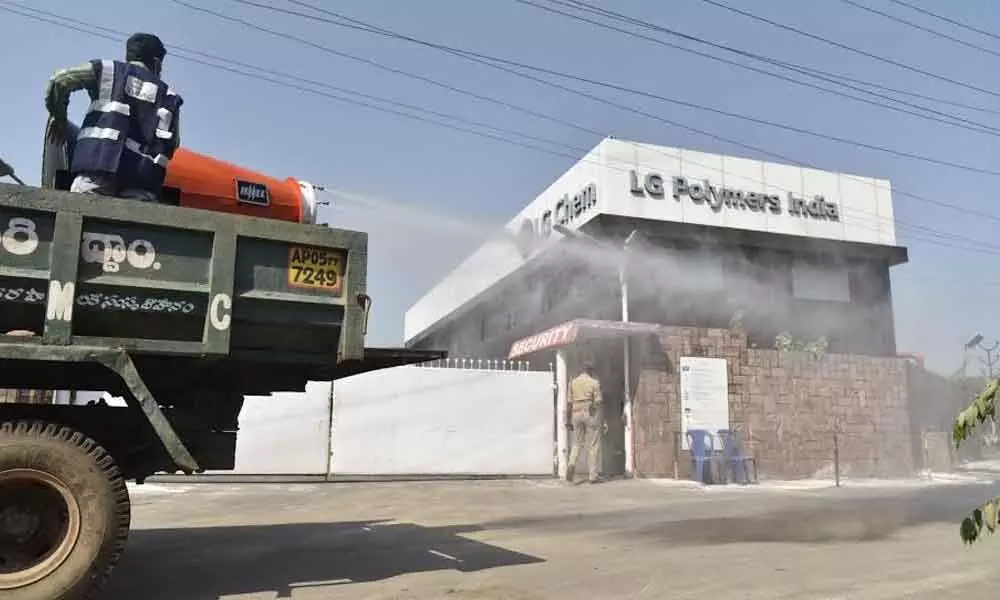Vizag Gas Leak: Experts warn about liver, kidney ailments
 Containment exercise on at LG Polymers in Visakhapatnam. Photo: A Pydiraju
Containment exercise on at LG Polymers in Visakhapatnam. Photo: A PydirajuFormer VC of Andhra University G Nageswara Rao says the short-term impact of styrene exposure leads to eye irritation, fatigue, headache and skin allergies and in the long run, it also leads to chronic ailments that are carcinogenic or teratogenic or mutagenic in nature
Visakhapatnam: As hundreds struggle to recoup in the hospitals after the gas leak at LG Polymers, experts warn about long term ailments that the incident would bring in for many.
Defining styrene as heavy liquid, director of Indian Institute of Petroleum and Energy (IIPE) V S R K Prasad says that it is tough to break the bonding between molecules of the styrene as when four-five molecules combine, monomers turn into polymers.
"Styrene per se is not lethal. But when inhaled for a long duration, will make one lose consciousness," explains the director of the IIPE.
With water being sprinkled in the area as part of the containment measure post the leakage of gas at LG Polymers followed by heavy rain on Saturday night, experts say that there is a higher possibility of the styrene seeping into the soil.
"There is a chance of the synthetic chemical getting deposited into water bodies through soil. Though the compound is stable, styrene is less soluble in water compared to other synthetic chemicals.
But even if minimum PPM gets into our body, it leads to bio-accumulation which leads to liver and kidney ailments," shares G Nageswara Rao, former Vice-Chancellor of Andhra University and retired Professor in Department of Chemistry.
Styrene is primarily incorporated in the production of polystyrene plastics and resins. But when the synthetic chemical enters the human body through food chain, experts warn about long term health implications.
When styrene enters the water bodies, Prof Nageswara Rao says, there is a scope for bio-magnification through the food chain as well.
"Though short-term impact of styrene exposure leads to eye irritation, fatigue, headache and skin allergies, in the long run, it also leads to chronic ailments that are carcinogenic or teratogenic or mutagenic in nature.
Pregnant women have a higher possibility of giving birth to a child with deformities," cautions the retired V-C. Though styrene per se is not reportedly lethal, a section of the environmental experts suspects any contamination of the chemical could have led to blisters in some cases found during the gas leak.
This, they feel, could be discussed and authenticated by subject experts rather than politicians visiting the LG Polymers plant.
With the government announcing to get a report submitted by the high-power committee in a month, subject experts also feel that such a long duration might not reveal the true picture as the traces of the chemical would have by then evaporated.








